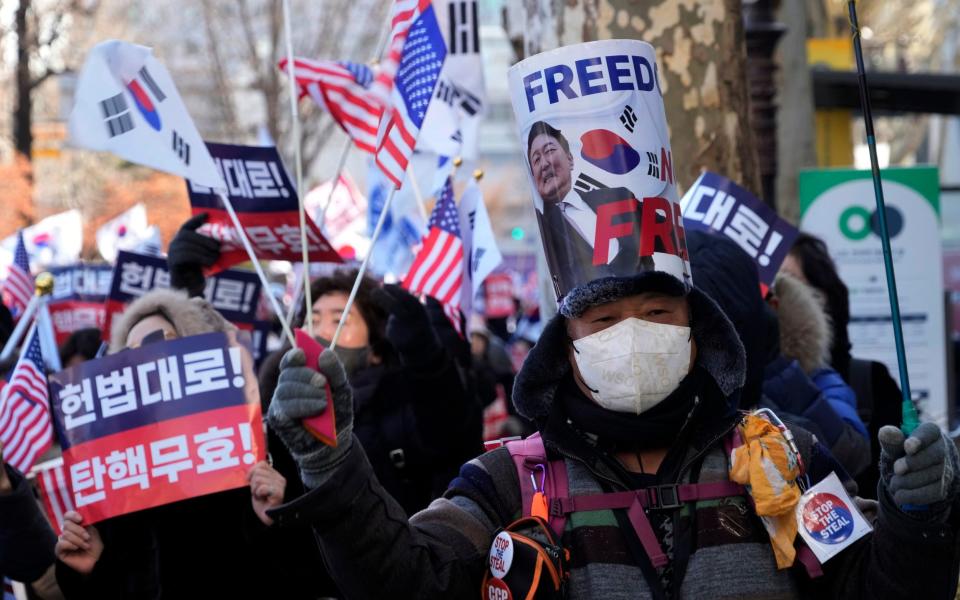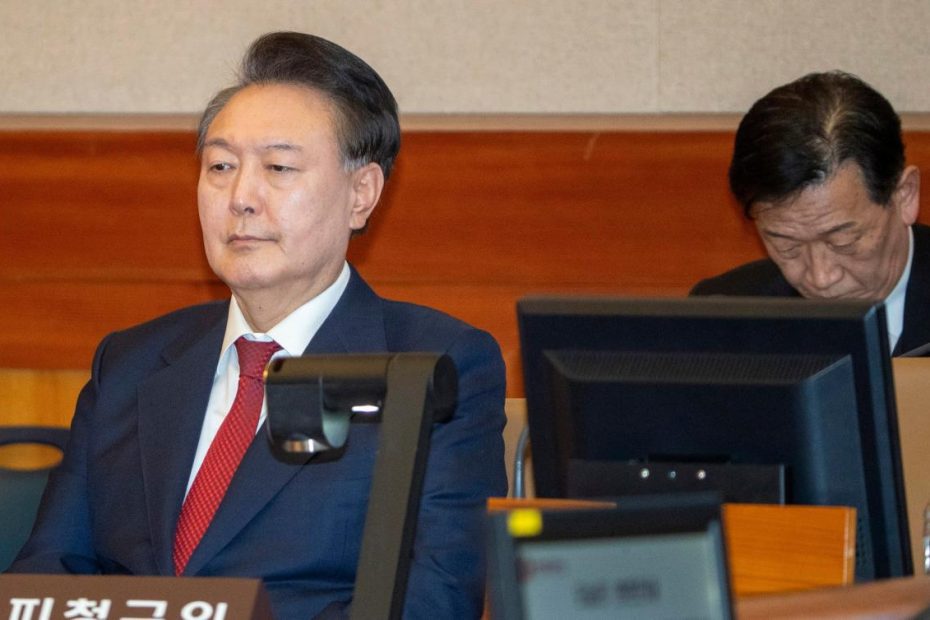Yoon Suk Yeol's attempt to impose the state of siege was to thwart a “legislative dictatorship” by the parliament controlled by the opposition, said the forged South Korean leader.
Yoon is confronted with life imprisonment or the death penalty for accusations of uprising after his arrest last month.
The 64-year-old former public prosecutor is the first sitting president of the country who ends up in a criminal case.
The criminal proceedings in the central court of Seoul thundered on Thursday morning lasted a little more than an hour.
Yoon attended the hearing but did not speak.
There was heavy security around the building, mobilized on site with 3,200 police staff, Yonhap News Agency reported.

Supporters swarmed outside the courthouse -Ahn Young -Joon/AP photo
Much of Mr Yoon's accusation concentrates on whether he has violated the Constitution by the State of Invest, which is reserved for national emergency situations or war times.
His decree lasted only about six hours when the parliament -led parliament led by the opposition to vote.
Officers of Justice accused the suspended president of being the “leader of an uprising”.
They argued against the release of him from the detention facility where he has been held since mid -January, and said that Mr Yoon could try “those who were involved in the case could influence”.
Kim Hong-Il, Mr Yoon's lawyer, appealed to the court and convicted the “illegal probe” against his client and argued that the “research body has no jurisdiction”.
“The statement of the State of Siege was not intended to paralyze the state,” said Mr. Kim.
He claimed that instead it was meant to “warn the public about the national crisis caused by the legislative dictatorship of the dominant opposition party, which had paralyzed the administration”.
“The judiciary must serve as the stabilizing force,” he told the three judges of the court and warned that he “witnessed a reality where illegality connects illegality”.
The Constitutional Court of South Korea separates individually about whether he formally removing Mr Yoon from his office after his accusation by the Parliament in December.
His 10th session in that case is planned at 3 p.m. Thursday afternoon (6.00 am GMT), a few hours after the hearing in his criminal trial.
Han Duck-Sooo, who was also accused of acting president, and Hong Jang-Won, the former high intelligence officer, were called to testify during that hearing.
Cho Ji-Ho, the head of the national police station of South Korea, which is also aware of the charges of uprising, is mentioned as a witness.
It is not clear whether the hearing of deposition will be his last for the eight judges of the Constitutional Court – a trial that can take up to fourteen days or even longer.
If Mr. Yoon is removed from his office, the country must keep new presidential elections within 60 days.
Expand your horizon with award -winning British journalism. Try De Telegraaf for free for 1 month with unlimited access to our award -winning website, exclusive app, money -saving offers and more.

